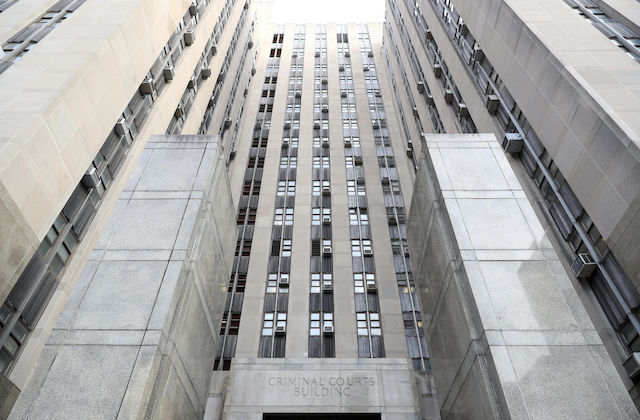Chief Justices in U.S. state supreme courts have been unexpectedly expressing their solidarity with anti-police-brutality protestors, journalist Jesse Wegman writes in an opinion piece published in The New York Times on Tuesday (June 16).
According to Wegman:
Judges are notoriously averse to saying anything in public beyond the words of their rulings. In normal times, that’s prudent; courts cannot appear to be taking sides on contested issues of public policy, especially ones they may be called to decide in the future.
These are anything but normal times, however, and these judges feel compelled to speak out about hard truths that are finally being acknowledged by protestors and corporations across the globe. “They are not trite expressions of sympathy or solidarity, nor rote reiterations of the judiciary’s commitment to equal justice under law,” Wegman says of the judges’ statements on the justice system. “Some are several pages long; most grapple directly with the American legal system’s central role in perpetuating racial inequality and injustice.”
Wegman writes:
“We are part of the problem they protest,” Chief Justice Bernette Joshua Johnson of the Louisiana Supreme Court wrote on June 8. “I firmly believe in the rule of law. But its legitimacy is in peril when African-American citizens see evidence every day of a criminal legal system that appears to value Black lives less than it values White lives.” She continued, “Is it any wonder why many people have little faith that our legal system is designed to serve them or protect them from harm? Is it any wonder why they have taken to the streets to demand that it does?”
Chief Justice Cheri Beasley of the North Carolina Supreme Court went further. “It is shocking to see our workplaces, businesses and community spaces damaged,” she said of the rioting and looting in cities like Raleigh and Charlotte. And yet “we must decry the failures of justice and equity just as forcefully as we decry violence. It is not enough to say to protesters ‘go home and follow the rules.’ It’s not that simple.”
Chief Justice Beasley and Chief Justice Johnson are both Black, Wegman notes in his piece. They factored in personal experiences when coming to their conclusions, but White judges have also expressed similar sentiments in their statements of support for protestors. Wegman points to Clemens A. Landau, the presiding judge of Utah’s Salt Lake City Justice Court, who wrote: “We are painfully aware that municipal courts like ours have historically been situated on, or at least very near, the tip of systemic racism’s spear.”
Wegman also notes, “As of June 16, statements had also come from the chief justices or full high courts of Massachusetts, Oregon, Washington,
rnKentucky, Indiana, Georgia, Alaska, New Jersey, California, Connecticut, Maryland, New York, Hawaii, Maine and the District of Columbia. More are likely to come in the days ahead,” he says.
Wegman also stresses the significance of hearing these thoughts coming from judges outside of their courtrooms. “From policing to prosecution to jury selection to incarceration to parole and probation, the evidence of disparate treatment of Black people in the criminal-justice system is overwhelming and irrefutable,” Wegman writes. “And because more than 95 percent of litigation flows through state courts—not including traffic court—how those courts understand their job and decide cases will be crucial to establishing any lasting systemic reforms.”
The question now, according to Wegman, is how these chief justices will begin to implement real changes. “As good as it is to see all these statements,” he says, “They must be translated into concrete action.”
“Whatever the nation’s highest court does or fails to do,” Wegman says, “the judiciary’s ultimate salvation will depend on Americans believing in its promises of independence, fairness and equal justice—and on looking at the courts and seeing themselves.”
Click here to read Wegman’s op-ed.
